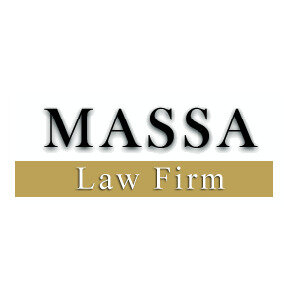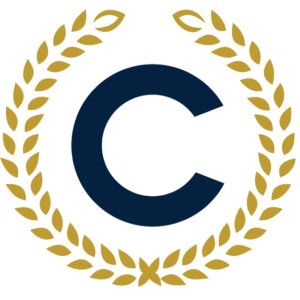Best Media and Entertainment Lawyers in Bologna
Share your needs with us, get contacted by law firms.
Free. Takes 2 min.
List of the best lawyers in Bologna, Italy
About Media and Entertainment Law in Bologna, Italy
Bologna, a vibrant city in Italy, known for its rich cultural heritage and lively arts scene, is a hub for media and entertainment activities. The landscape of media and entertainment in Bologna encompasses film, music, theater, and digital media, providing plenty of opportunities for creativity, collaboration, and business. However, with these opportunities comes the need for a robust legal framework to address issues such as copyright, intellectual property rights, contractual agreements, and more. Media and entertainment law in Bologna ensures that both creators and companies are protected and that their rights are upheld in the ever-evolving landscape of media and technology.
Why You May Need a Lawyer
There are numerous situations where individuals or businesses involved in media and entertainment may require legal assistance:
- Contractual Agreements: Whether you are an artist, producer, or media company, you will likely need help with drafting, negotiating, or interpreting contracts to ensure your interests are protected.
- Intellectual Property Protection: Safeguarding your creations through copyright, trademarks, or patents may require legal expertise.
- Dispute Resolution: If disputes arise over rights, royalties, or usage of media products, legal guidance can be crucial.
- Regulatory Compliance: Navigating the legal regulations surrounding broadcasting and media distribution requires informed legal advice.
- Licensing and Distribution: Professionals often need assistance in licensing agreements and distribution deals to expand their reach locally and internationally.
Local Laws Overview
Media and entertainment law in Bologna is influenced by a combination of Italian national law and European Union directives:
- The Italian Copyright Law ensures that authors have exclusive rights to their creative works and protect them against unauthorized use.
- Italian Civil Code provides the basis for contract law, which is crucial in drafting agreements and resolving disputes in media and entertainment.
- The Audio-visual Media Services Directive from the EU influences regulations on broadcasting and digital media distribution.
- Privacy laws, including GDPR compliance, are paramount for handling data in media projects.
- Licensing frameworks are important for foreign and local media ventures operating in the region.
Frequently Asked Questions
What constitutes intellectual property in media and entertainment?
Intellectual property (IP) in media and entertainment includes creations of the mind, such as literary and artistic works, designs, symbols, images, and names used in commerce.
How can I protect my work in Bologna?
You can protect your work by registering it under copyright law, securing trademarks for brands, or applying for patents for inventions with the help of a legal professional.
What should I include in a media contract?
A media contract should clearly outline the rights and responsibilities of each party, compensation terms, duration, confidentiality clauses, and dispute resolution mechanisms.
What are the penalties for copyright infringement in Italy?
Penalties can include fines, injunctions to stop further infringements, and compensation for damages. Criminal sanctions may also apply for severe violations.
How do EU regulations affect media businesses in Bologna?
EU regulations ensure standardization across member states, affecting broadcasting quotas, content regulations, data protection, and licensing.
Can I use music in my film without permission?
No, using music without permission is typically a violation of copyright law. You need to secure licenses from the copyright holders.
What role does a lawyer play in negotiating distribution deals?
A lawyer ensures that the distribution deal is equitable, legally sound, and that your rights are fully protected throughout the process.
Do I need a lawyer for dispute resolution in media and entertainment?
Having a lawyer is beneficial as they can help navigate complex legal frameworks and facilitate negotiations or represent you in legal proceedings.
How do privacy laws affect media productions?
Media productions must comply with privacy laws, ensuring that personal data used in productions is handled according to GDPR standards, which includes obtaining consent where needed.
How can a lawyer assist with compliance in media-related projects?
Lawyers can ensure that your media project complies with national and EU regulations, covering areas such as content laws, advertising standards, and data protection requirements.
Additional Resources
For those seeking further information or assistance, consider the following resources:
- Italian Ministry of Cultural Heritage and Activities: Offers guidance on cultural activities and media regulations.
- EU Intellectual Property Office: Provides resources on protecting intellectual property across the EU.
- Local Bar Association: Can help find specialized media and entertainment lawyers in Bologna.
- Garante per la Protezione dei Dati Personali: Offers guidance on data protection related to media.
Next Steps
If you need legal assistance in media and entertainment, consider the following steps:
- Identify Your Needs: Determine the specific area where you require legal help, whether it’s contracts, IP protection, or dispute resolution.
- Consult a Specialist Lawyer: Reach out to lawyers who specialize in media and entertainment law to get tailored advice for your situation.
- Prepare Relevant Documentation: Gather all documentation related to your case, such as contracts, correspondence, and any communication, to provide your lawyer with comprehensive information.
- Explore Local Resources: Utilize local resources and organizations that can provide additional guidance or networking opportunities within the media domain.
Lawzana helps you find the best lawyers and law firms in Bologna through a curated and pre-screened list of qualified legal professionals. Our platform offers rankings and detailed profiles of attorneys and law firms, allowing you to compare based on practice areas, including Media and Entertainment, experience, and client feedback.
Each profile includes a description of the firm's areas of practice, client reviews, team members and partners, year of establishment, spoken languages, office locations, contact information, social media presence, and any published articles or resources. Most firms on our platform speak English and are experienced in both local and international legal matters.
Get a quote from top-rated law firms in Bologna, Italy — quickly, securely, and without unnecessary hassle.
Disclaimer:
The information provided on this page is for general informational purposes only and does not constitute legal advice. While we strive to ensure the accuracy and relevance of the content, legal information may change over time, and interpretations of the law can vary. You should always consult with a qualified legal professional for advice specific to your situation.
We disclaim all liability for actions taken or not taken based on the content of this page. If you believe any information is incorrect or outdated, please contact us, and we will review and update it where appropriate.










